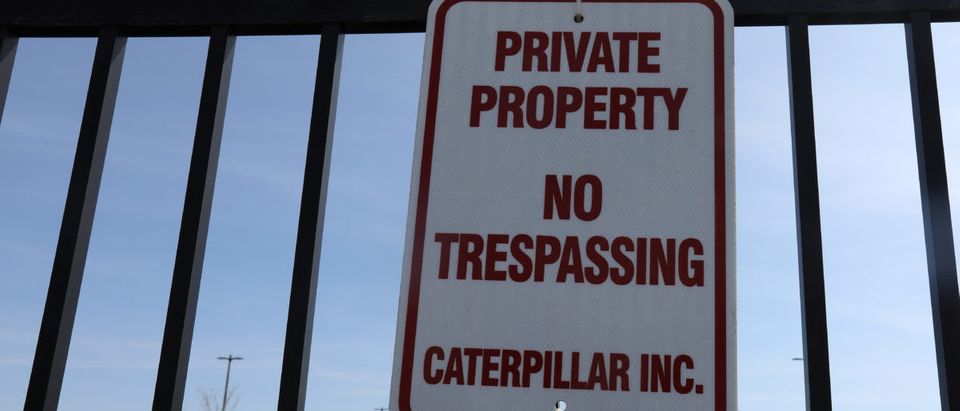The House of Representatives unanimously passed legislation Monday that would freeze federal economic development funds to any state or local government that seized property from one owner and gave it to another owner for “economic development.”
The Private Property Rights Act, introduced by Republican Rep. Jim Sensenbrenner of Wisconsin in 2017, was co-sponsored by Democratic Rep. Maxine Waters of California and Republican Rep. Brian Fitzpatrick of Pennsylvania. It was an undertaking thirteen years in the making for Sensenbrenner, who first introduced a version of the bill after the Kelo v. New London Supreme Court decision in 2005. It was the fourth time Sensenbrenner had introduced the bill in Congress and the fourth time it had passed in the House, according to Hot Air.
Kelo was the decision where the Supreme Court ruled that the government could take someone’s property and give it to another owner in the name of “economic development” under the Constitution’s Taking Clause, according to the Institute for Justice. The Constitution allows for the government to use eminent domain for “public use” under the Fifth Amendment, but the Supreme Court expanded that power in Kelo. (RELATED: Small Virginia Business Beats Government In Eminent Domain Clash)
The bill would freeze federal economic development funds to any state or locality that would use the “economic development justification” for eminent domain. It would also prevent the federal government from using eminent domain for “economic development,” according to Sensenbrenner’s press release.
“This bipartisan legislation restores the individual private property rights guaranteed in the Fifth Amendment,” Sensenbrenner said in a statement. “The framers of the Constitution would be horrified by the paradigm created by Kelo:a government free to seize and transfer private property from individuals with fewer resources to private entities with more I’m grateful to my colleagues for their support of this bill and urge the Senate to immediately send it to the President’s desk.”
If signed into law, the bill would also express Congress’s affirmation that private property rights are “central to liberty in this country [U.S.] and to our economy.” It would also affirm that Congress “has a duty to protect the private property rights of rural Americans in the face of eminent domain abuse.”
Roger Pilon, the Cato Institute’s vice president for legal affairs, applauded the passage of the bill. The Cato Institute is a libertarian think tank that has criticized the Kelo decision in the past.
“This bill would correct the Supreme Court’s error in the Kelo decision. The least legitimate rationale for eminent domain in so far as it involves the transfer of property from one private owner to another is economic development,” Pilon said to The Daily Caller News Foundation. “It’s nothing more than a way for one party to get property on the cheap from another party.”
The bill still has to go through the Senate, which has failed to pass the bill every time it has come up, according to Hot Air. In addition, if it were to pass the Senate, it would still have to be signed by President Donald Trump, who has applauded the Kelo decision in the past.
“But I happen to agree with it 100 percent,” Trump said in a Fox News interview in 2005 when questioned about Kelo. He also said he “loved” eminent domain in a 2015 interview with Fox News’s Bret Baier.
Follow Elias Atienza on Twitter
All content created by the Daily Caller News Foundation, an independent and nonpartisan newswire service, is available without charge to any legitimate news publisher that can provide a large audience. All republished articles must include our logo, our reporter’s byline and their DCNF affiliation. For any questions about our guidelines or partnering with us, please contact licensing@dailycallernewsfoundation.org.


